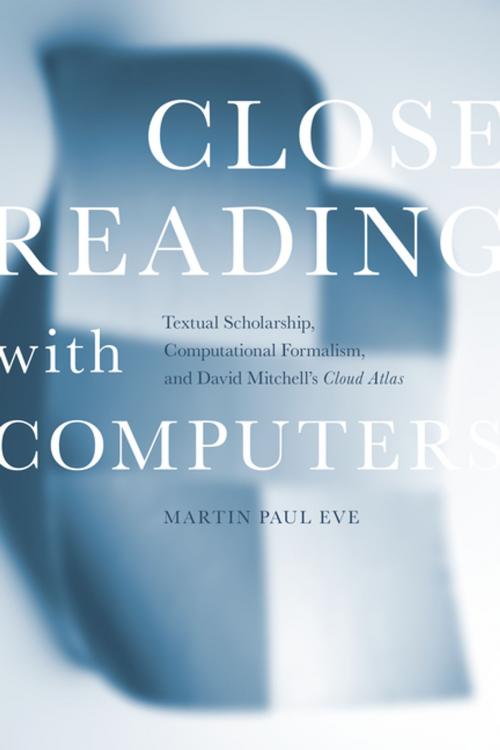Close Reading with Computers
Textual Scholarship, Computational Formalism, and David Mitchell's Cloud Atlas
Fiction & Literature, Literary Theory & Criticism, British, American| Author: | Martin Paul Eve | ISBN: | 9781503609372 |
| Publisher: | Stanford University Press | Publication: | June 4, 2019 |
| Imprint: | Stanford University Press | Language: | English |
| Author: | Martin Paul Eve |
| ISBN: | 9781503609372 |
| Publisher: | Stanford University Press |
| Publication: | June 4, 2019 |
| Imprint: | Stanford University Press |
| Language: | English |
Most contemporary digital studies are interested in distant-reading paradigms for large-scale literary history. This book asks what happens when such telescopic techniques function as a microscope instead. The first monograph to bring a range of computational methods to bear on a single novel in a sustained fashion, it focuses on the award-winning and genre-bending Cloud Atlas (2004). Published in two very different versions worldwide without anyone taking much notice, David Mitchell's novel is ideal fodder for a textual-genetic publishing history, reflections on micro-tectonic shifts in language by authors who move between genres, and explorations of how we imagine people wrote in bygone eras. Though Close Reading with Computers focuses on but one novel, it has a crucial exemplary function: author Martin Paul Eve demonstrates a set of methods and provides open-source software tools that others can use in their own literary-critical practices. In this way, the project serves as a bridge between users of digital methods and those engaged in more traditional literary-critical endeavors.
Most contemporary digital studies are interested in distant-reading paradigms for large-scale literary history. This book asks what happens when such telescopic techniques function as a microscope instead. The first monograph to bring a range of computational methods to bear on a single novel in a sustained fashion, it focuses on the award-winning and genre-bending Cloud Atlas (2004). Published in two very different versions worldwide without anyone taking much notice, David Mitchell's novel is ideal fodder for a textual-genetic publishing history, reflections on micro-tectonic shifts in language by authors who move between genres, and explorations of how we imagine people wrote in bygone eras. Though Close Reading with Computers focuses on but one novel, it has a crucial exemplary function: author Martin Paul Eve demonstrates a set of methods and provides open-source software tools that others can use in their own literary-critical practices. In this way, the project serves as a bridge between users of digital methods and those engaged in more traditional literary-critical endeavors.















